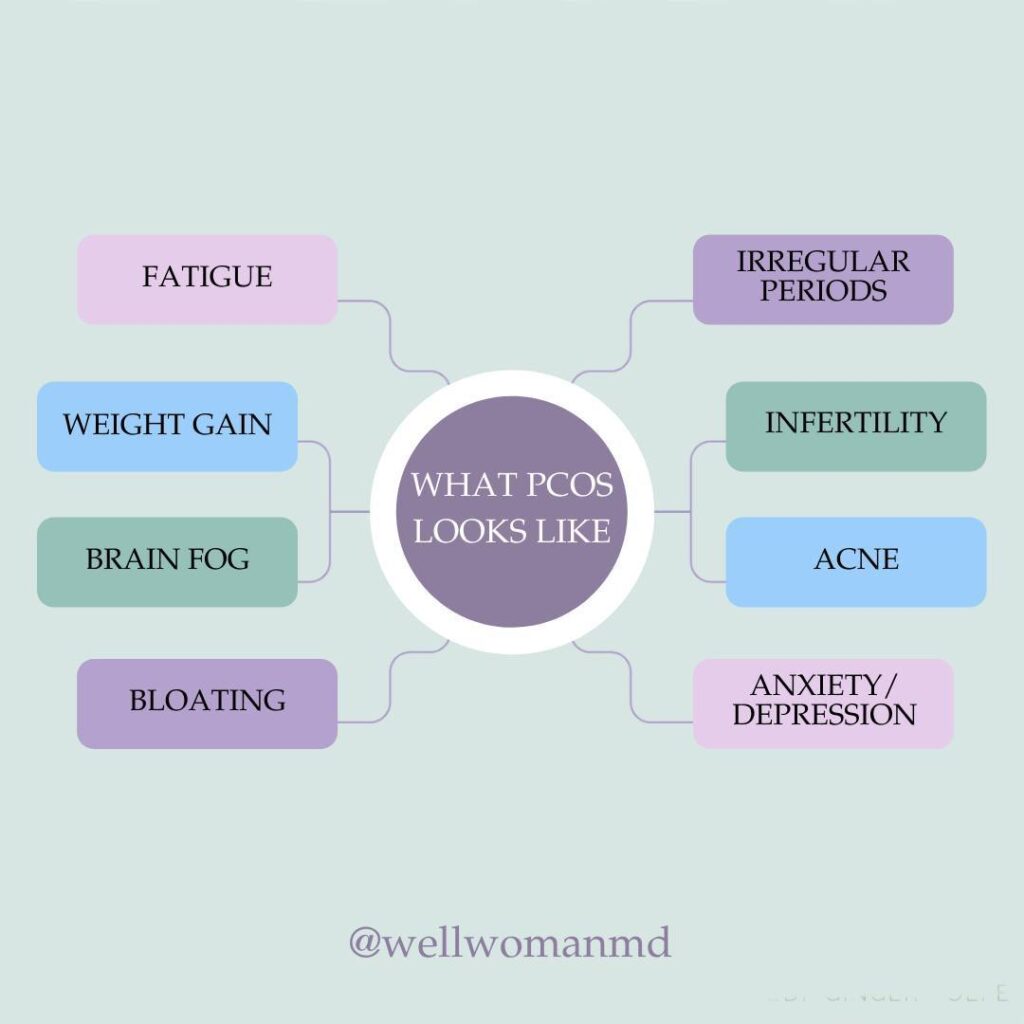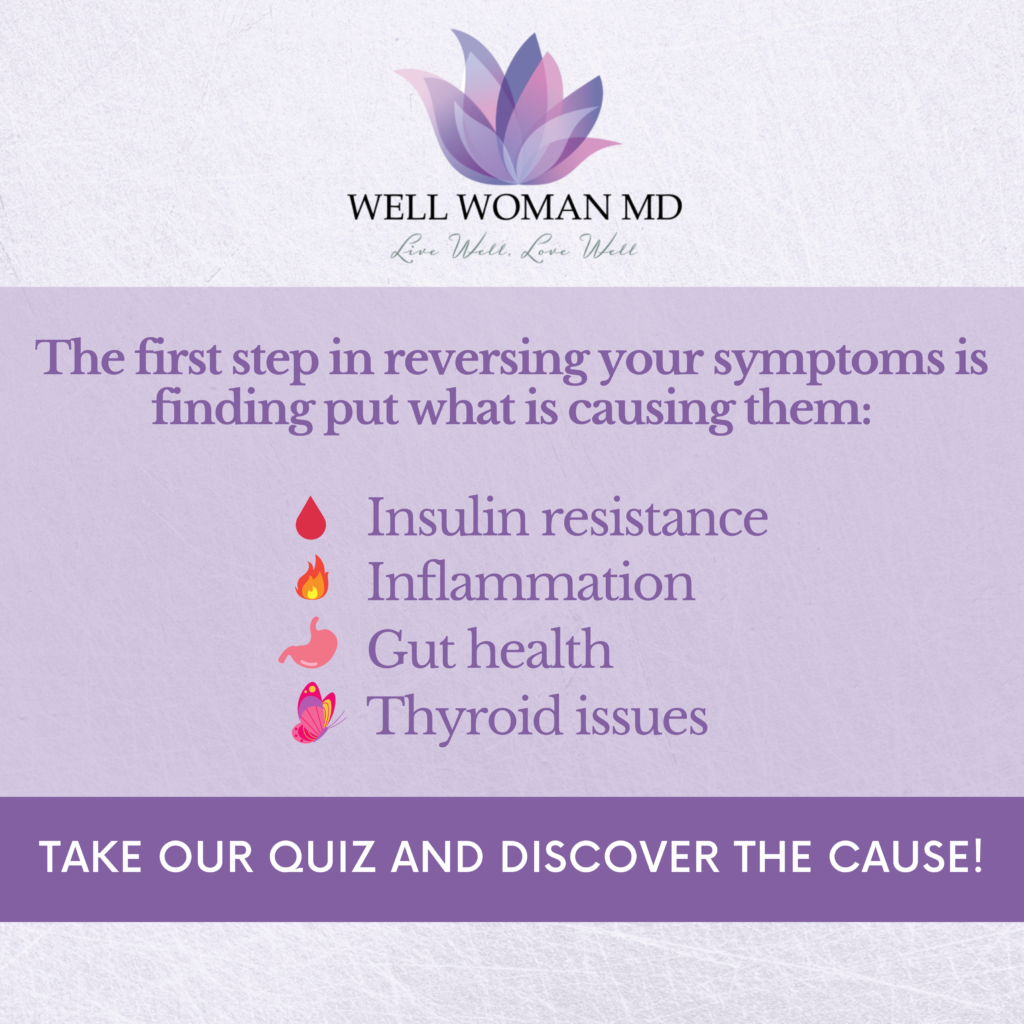PCOS, or polycystic ovarian syndrome, is characterized by an overproduction of androgens and irregular cycles. PCOS is the leading cause of female infertility. Around 1:10, women will be diagnosed with PCOS. But often, it takes years for that diagnosis. The reason is that many signs and symptoms of PCOS overlap with other GYN conditions.
Let’s review the common signs and symptoms seen in women with PCOS.
PCOS Signs and Symptoms
There are many signs and symptoms of PCOS. But here are the most common symptoms.
- Acne
- Irregular Cycles
- PMS/mood issues
- Hair on the chin or belly is called Hirsutism
- Infertility
- Miscarriage
- Borderline Diabetes
- Hair loss/male pattern hair loss
- Cysts on the ovaries

PCOS Diagnosis
There isn’t one single test that can diagnose PCOS making diagnosis challenging. It’s common for women to wait years to get a PCOS diagnosis! That is because the symptoms mimic many other GYN conditions. There are several ways to diagnose PCOS, including the Rotterdam criteria or Androgen Excess Society guidelines. But for both:
You have two of the following four findings to be diagnosed with PCOS.
- Irregular menstrual cycles (absence of a period for months, skipped periods, or lack of ovulation).
- Higher than normal blood levels of androgen hormones.
- Signs of high androgen hormones such as acne and increased body or facial hair (hirsutism).
- One or more ovaries that have a “polycystic” appearance (many follicles) on ultrasound.
Root Causes of PCOS Symptoms
While there is no specific cause of PCOS, there are many factors that contribute to PCOS symptoms. These are the main drivers of PCOS symptoms. Once you identify if you have these drivers, you can start to reverse your symptoms and signs.
- Insulin Resistance
- Inflammation
- Gut Health
Are you ready to figure out what is driving your symptoms?

Take the FREE QUIZ and find out what is causing your PCOS symptoms so you can feel yourself again.
What happens if PCOS goes untreated?
Women with PCOS are at a higher risk of developing diabetes, heart disease, infertility, skin conditions, and obesity.
It is a metabolic disorder that affects the endocrine system and causes an imbalance in your hormones. The endocrine system comprises many glands, including your pituitary, thyroid, thymus, reproductive organs, adrenal glands, and pancreas. Your hormones are signals that allow the endocrine system to regulate your blood sugar, temperature, heart rate, weight, ovulation, etc.



